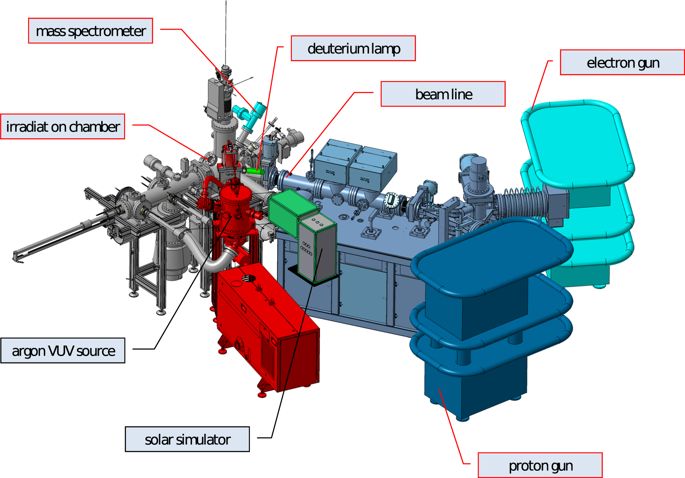npj Materials Degradation ( IF 5.1 ) Pub Date : 2018-01-23 , DOI: 10.1038/s41529-017-0024-z Maciej Sznajder , Ulrich Geppert , Mirosław R. Dudek

|
Metallic surfaces, exposed to a proton flux, start to degradate by molecular hydrogen blisters. These are created by recombination of protons with metal electrons. Continued irradiation progresses blistering, which is undesired for many technical applications. In this work, the effect of the proton flux magnitude onto the degradation of native metal oxide layers and its consequences for blister formation has been examined. To study this phenomenon, we performed proton irradiation experiments of aluminium surfaces. The proton kinetic energy was chosen so that all recombined hydrogen is trapped within the metal structure. As a result, we discovered that intense proton irradiation increases the permeability of aluminium oxide layers for hydrogen atoms, thereby counteracting blister formation. These findings may improve the understanding of the hydrogen blistering process, are valid for all metals kept under terrestrial ambient conditions, and important for the design of proton irradiation tests.
中文翻译:

极端辐射条件下的氢气起泡
暴露于质子通量的金属表面开始因分子氢气泡而降解。这些是通过质子与金属电子的复合而产生的。持续的照射会导致起泡,这是许多技术应用所不希望的。在这项工作中,已经检查了质子通量大小对天然金属氧化物层降解的影响及其对气泡形成的影响。为了研究这种现象,我们进行了铝表面的质子辐照实验。选择质子动能以使所有重新结合的氢都被捕获在金属结构内。结果,我们发现强质子辐射增加了氧化铝层对氢原子的渗透性,从而抵消了水泡的形成。



























 京公网安备 11010802027423号
京公网安备 11010802027423号